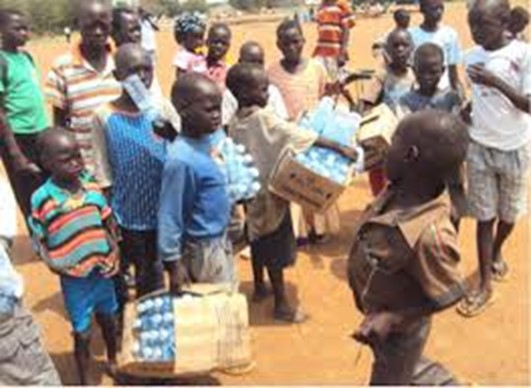By Jacob Onuha Nelson
Some of the disadvantaged children in Juba City have called for help from the government and the partners as the situation worsens.
The kids face challenges like lack of shelter, food, and medication, among others.
While they continue to sleep on city streets, little has been done to ensure that they are transformed.
In an exclusive interview with this outlet on Tuesday at Konyokonyo market, James Ubah Lino, one of the children on streets, sadly expressed they sometimes sleep without food.
He expressed that after the father’s death, he joined the street, where he hustles to survive; no one was taking care of him.
“We are hustling and collecting bottles; there is no money. “My dad died a long time ago; I stayed with my aunt at the Internally Displaced Persons (IDPs) at Don Bosco,” Ubah said.
Ubah narrated that her aunt felt unwell to provide for the family at the moment for some days hence, forcing him to join the streets.
“We can’t die at home with hunger; instead, I should go on the street to pick food or something like that to eat at home,” he said.
“I am an orphan; my aunt is too sick to feed us,” he added.
Meanwhile, Morris Ladu Vincent, a 7-year-old kid, stated that he had no access to education as well as support for his life in this economic crisis.
“I don’t go to school, my dad doesn’t work, and my mom died a long time ago in the village,” Ladu stated.
Ladu emphasized that despite his stepmother’s mistreatment at home, he decided to run away from home because of missing meals at home.
“My dad doesn’t work, and my mom died a long time ago while I was 6 months old.” Ladu said.
“My dad has many wives, and the other stepmother whom I stay with beats me at home every day.” he said.
“And I ran away from home, and I usually don’t get food sometimes at home,” Ladu added.
Ladu urged the government to look at their situation and do something to provide food, medication, shelter, and education.
“We admire our agemates with school uniforms when they go to schools; we need to go to school like them,” Ladu wept.
However, most of the homeless children had been facing the long-term conflict, displacement, family disruption, and economic hardships in the country.




